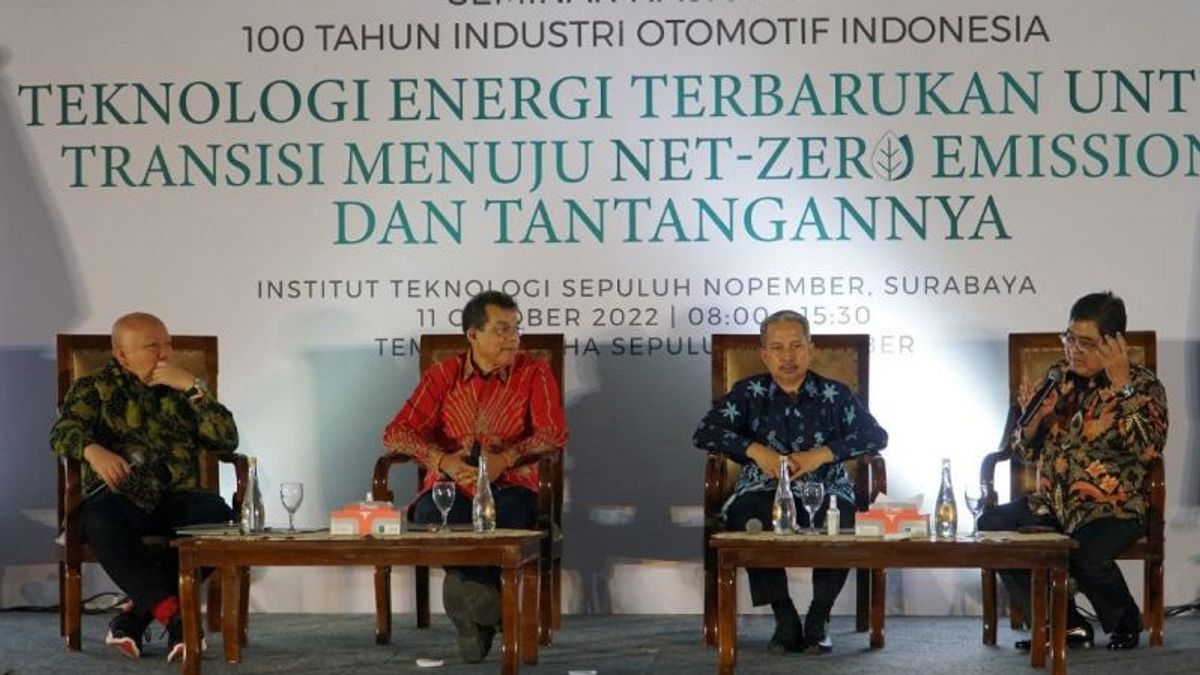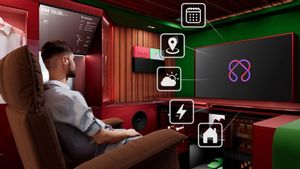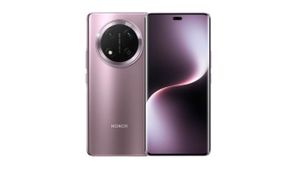JAKARTA - PT Toyota Motor Manufacturing Indonesia (TMMIN) said it was ready to produce renewable energy-based environmentally friendly vehicles to support the achievement of Net Zero Emission (NZE) or carbon neutrality launched by the government in 2060.
"We have produced ethanol-based machines in Indonesia, which have been exported. We have the technology," said TMMIN External Relations Director Bob Azam, at the seminar "New Renewable Energy Transition Towards Net Zero Emission (NZE) and Challenges" at the Sepuluh November Institute of Technology (ITS), Surabaya, quoted from Antara, Wednesday, October 12.
At the seminar that explained the strategic role of the energy transition to carbon neutrality, he said his party was ready if the Indonesian government wanted the use of environmentally friendly cars based on biofuel ethanol, in addition to Biodiesel 30 (B30) which is a mixture of fuel with crude palm oil (CPO).
To support Indonesia's carbon neutrality, continued Bob, Toyota as a global automotive player has a variety of environmentally friendly technologies that are able to be adapted to the energy mix according to state policies, including hybrid vehicles, electric vehicles (BEVs), to hydrogen vehicles. Toyota calls it mutli-pathway technology.
"For example, hybrid vehicles can cut fuel consumption by up to 50 percent," he said. Toyota itself, he continued, already has a vision that by 2030 all vehicles produced are electric-based.
On the same occasion, TTMMIN Vice President Nandi Julyanto said that his party was not only focused downstream on producing low-emission vehicles, but also in the manufacturing process to the use of more environmentally friendly power plants.
Moreover, according to the ITS Chancellor in his remarks, currently nearly 60-70 percent of power plants are still coal-based, so the role of the renewable energy transition to carbon neutrality is very important.
Other talks such as Co-Founder & Director of the Indonesia Research Institute for Decarbonization, Paul Butarbutar explained the connection of a low-carbon economic system with the transition of new and renewable energy as well as its implications for the manufacturing and automotive industry sector in particular.
Spokes from ITS Prof. Ir Joni Hermana MSc, among others, expressed the readiness of academics to conduct research and prototype electric vehicles that can be commercialized while receiving government support. He admitted, sometimes imported electric vehicles are cheaper.
While Toyota Indonesia's representative, Vice President of Toyota Daihatsu Engineering & Manufacturing Yoshiaki Ishimoto explained the role of the automotive industry for the renewable energy transition made by Toyota in several countries and stated Toyota's readiness to support Indonesia's target towards NZE 2060.
Enclave
On that occasion Bob Azam also revealed the need to make enclaves or certain locations in the development of the electric vehicle ecosystem, such as in Nusa Dua Bali, to educate and popularize the use of environmentally friendly vehicles.
"In addition, so that infrastructure costs are not too expensive," he said. According to him, the investment costs for Public Electric Vehicle Charging Stations (SPKLU) are quite high, especially fast charging.
In addition, he said, in the development of electric vehicles, it is also necessary to have the government's courage to provide incentives, not only taxes, but also cashback, to buyers of electric vehicles.
He gave an example of the United States (US) government providing cashback for the purchase of electric cars of up to around Rp. 100 million per unit, China with cashback of up to Rp. 200 million per unit, and Thailand between Rp. 25 million to 50 million per unit.
The English, Chinese, Japanese, Arabic, and French versions are automatically generated by the AI. So there may still be inaccuracies in translating, please always see Indonesian as our main language. (system supported by DigitalSiber.id)
Most Popular Tags
#Prabowo Subianto #New Year #airplane accident #Hasto Kristiyanto #nataru #squid game 2Popular
03 Januari 2025, 07:07
03 Januari 2025, 10:38
03 Januari 2025, 09:36
03 Januari 2025, 09:16













